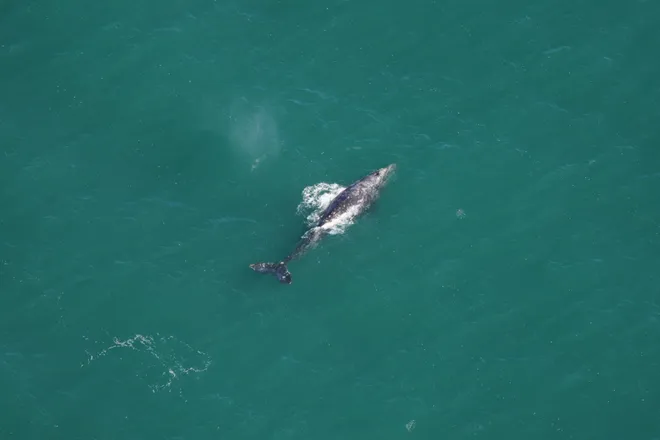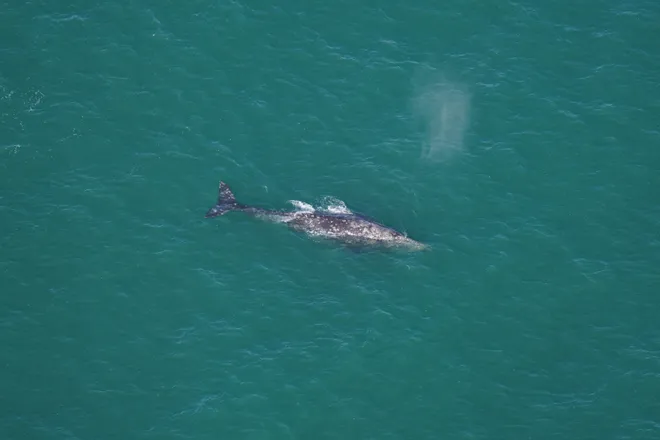Rare gray whale, extinct in the Atlantic for 200 years, spotted off Nantucket

In a rare event, a gray whale has been spotted off the coast of Massachusetts. It's a species that has been extinct from the Atlantic for more than 200 years.
The whale was spotted last Friday by the New England Aquarium's aerial survey team about 30 miles off Nantucket, a tiny island off Cape Cod and a popular summer tourist destination.
As the aerial survey plane circled for 45 minutes, the whale repeatedly dived and resurfaced and appeared to be feeding, according to a release from the aquarium. Afterward, researchers reviewed their photos and confirmed that it was indeed a gray whale.
“My brain was trying to process what I was seeing, because this animal was something that should not really exist in these waters,” research technician Kate Laemmle said in a news release. “We were laughing because of how wild and exciting this was − to see an animal that disappeared from the Atlantic hundreds of years ago.”
Rare event:Has Charlotte the stingray given birth yet? Fans, social media are patiently waiting
What is a gray whale?

Gray whales are large whales, up to 49 feet long and weighing about 90,000 pounds. They have one of the longest migration patterns of any mammal, often traveling 10,000 to 14,000 miles round trip.
According to the National Oceanic and Atmospheric Administration, they earned the nickname "devil fish" because of their aggressive response when harpooned by hunters. They were hunted nearly to extinction, but thanks to commercial whaling moratoriums and conservation efforts, they are now a protected species.

Where are gray whales found?
Although they were once common throughout the Northern Hemisphere, gray whales are now mainly found in the North Pacific Ocean, according to NOAA.
Gray whales disappeared from the Atlantic Ocean by the 18th century, but they have been observed in Atlantic and Mediterranean waters in the past 15 years, according to the New England Aquarium. Scientists believe the whale spotted off Massachusetts last week is the same whale sighted in Florida in December 2023.
Sightings of gray whales thousands of miles from home may be a result of climate change, the New England Aquarium says, because the Northwest Passage, which connects the Atlantic and Pacific through the Arctic Ocean, has been ice-free in recent summers. Sea ice typically limits the range for gray whales.
Disclaimer: The copyright of this article belongs to the original author. Reposting this article is solely for the purpose of information dissemination and does not constitute any investment advice. If there is any infringement, please contact us immediately. We will make corrections or deletions as necessary. Thank you.





